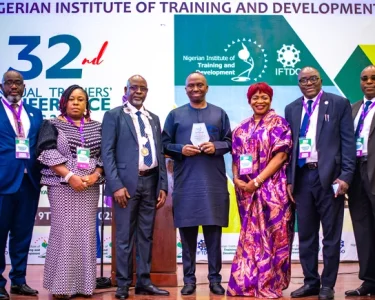Nigeria has unveiled its first Blockchain Policy Whitepaper, outlining a framework to drive financial inclusion, supply chain transparency, and position itself as a global digital economy leader.
Minister of Communications, Innovation and Digital Economy, Dr Bosun Tijani, emphasised that this signals a strategic shift toward leveraging emerging technologies for inclusive economic growth.
He underlined that the policy aims to create a structured, inclusive, and forward-looking framework for the adoption of blockchain technology across multiple sectors.
“The inclusive approach ensures that Nigeria’s Blockchain policy is not only technically sound, but also locally relevant, with broad-based support that reflects the realities and aspirations of our nation,” he said.
The minister stated that the paper aptly named, Co-creating a Roadmap for Blockchain in Nigeria, underlines the importance of inclusivity, public trust, and innovation in building a policy that reflects the aspirations of Nigerians.
The whitepaper highlights blockchain’s potential to revolutionise financial services, agriculture, and digital identity.
With studies indicating that blockchain could reduce transaction costs by up to 80% and deliver over $1.76 trillion in global economic impact by 2030, Nigeria is positioning itself to harness these benefits.
In agriculture, blockchain is expected to enhance supply chain transparency, while in financial services, it promises broader access for underserved communities.
Secure, tamper-proof digital identities are also on the agenda, aiming to address identification challenges across the country.
Building on the National Blockchain Strategy issued by the National Information Technology Development Agency in 2024, the new policy incorporates research from top Nigerian blockchain experts worldwide.
A unique methodology using generative AI and human verification was employed to identify key researchers of Nigerian descent, ensuring the policy is rooted in global expertise with local insight.
Tijani said the ministry is further calling for continued collaboration with government agencies, academia, civil society, and the private sector.
“By crowd-sourcing validation and encouraging diverse participation, the policy seeks to promote innovation and ensure sustainable implementation,” he said.




